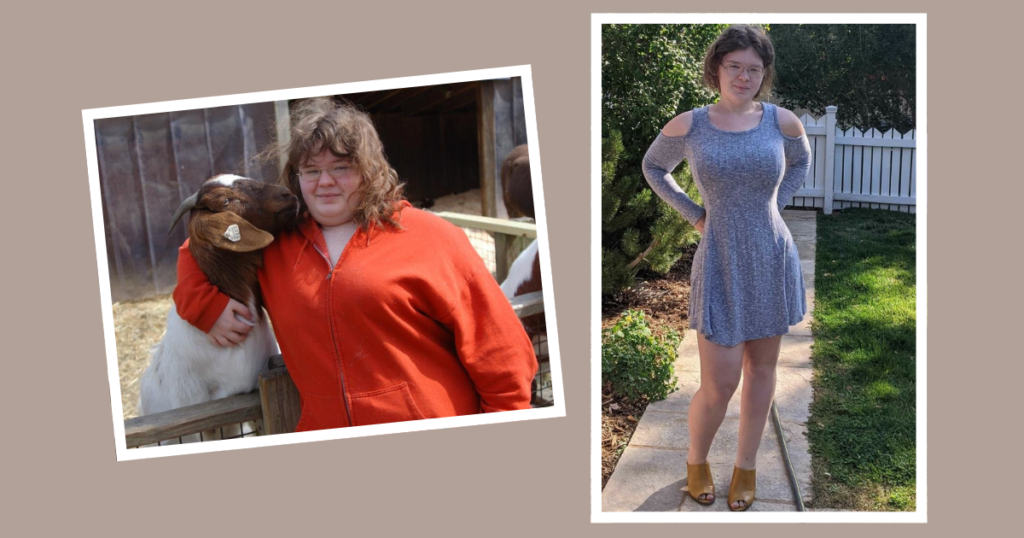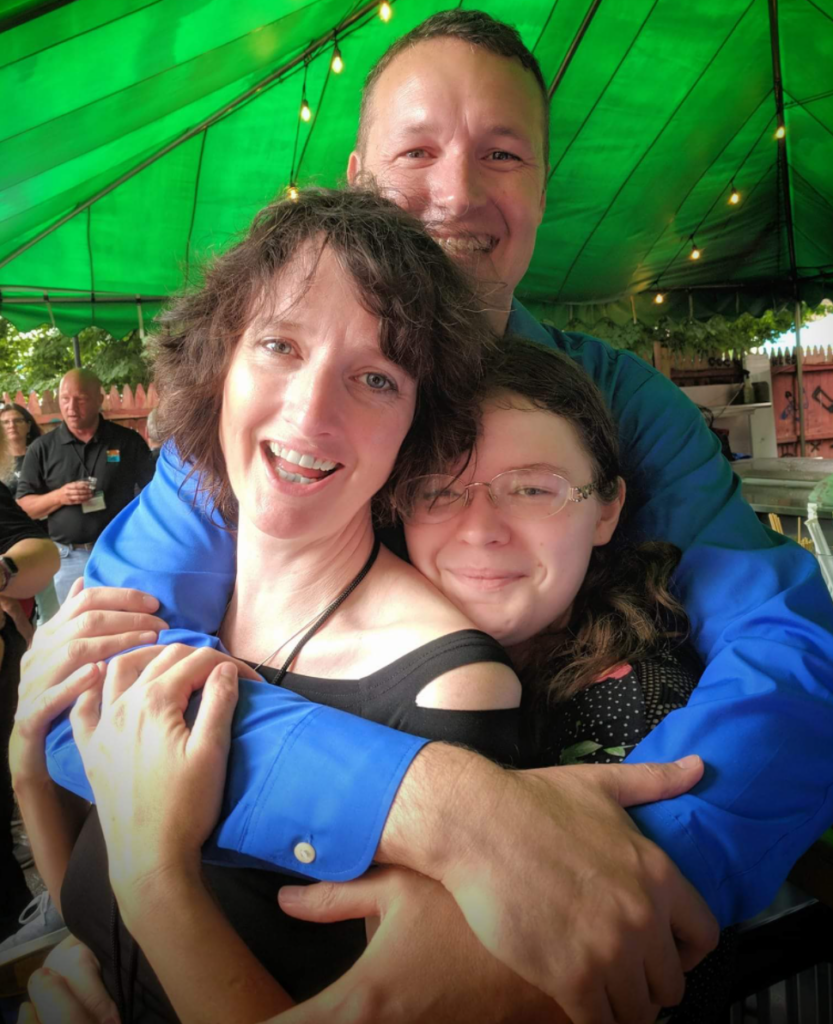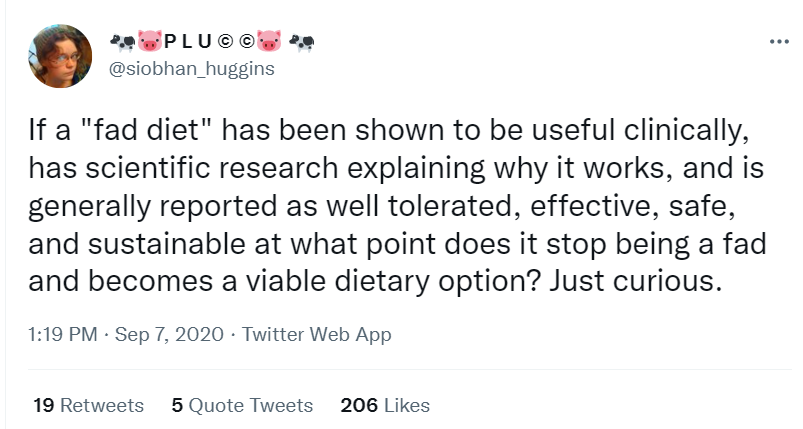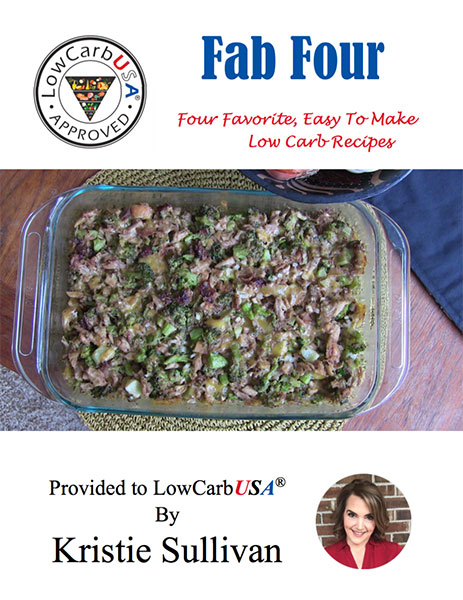Siobhan Huggins, who used ketogenic diet to lose 80 pounds and overcome depression, to present at 2022 Low Carb Boca Conference
On the morning of Saturday, January 15, Siobhan Huggins, 26, will take the stage at the 2022 Low Carb Boca Conference to discuss lipedema, how it can be recognized, and the science of the disorder – with a focus on why ketogenic diets may be beneficial as a management strategy.
Lipedema is a condition that causes a buildup of fat to accumulate in the lower part of the body, as well as the upper arms. The condition occurs almost exclusively in women.
In the presentation, entitled Why Keto For Lipedema? Possible Mechanisms and Insights, Siobhan will talk about the science and mechanisms of how keto may be particularly beneficial. It will also include research she’s done on the subject since restoring her health, both physically and mentally, through the implementation of a ketogenic diet five years ago at the age of 21.

Siobhan Huggins will present at the 2022 Low Carb Boca Conference.
Many in the low-carb community are aware of Siobhan for the work she has done with researcher Dave Feldman in several areas, including energy metabolism, LDL cholesterol, the immune system, and lipoproteins.
Siobhan describes herself as an independent researcher, and she is co-owner, along with Feldman, of Own Your Labs, a service where people can get their blood tests taken and opt to share their anonymized data to help advance science. She is also co-director of an upcoming symposium on ketogenic diets for lymphatic and fat disorders, being organized by the Lipedema Project (more info will be linked here when it’s available).
What is Lipedema?
Lipedema is a relatively common fat disorder that is often mistaken for simple obesity, according to the Lipedema Project:
Its clinical diagnosis is an adipose tissue disorder or a lipid metabolism disorder. A typical lipedema patient is a woman who struggles with large hips and legs, usually out of proportion to the rest of her body. Lipedema also appears in the upper arms. One of the hallmarks of the disease is that lipedema fat is relatively unresponsive to diet and exercise. These measures may lead to weight loss in other areas, but the size of the hips and legs remains disproportionately large.
Why Keto for Lipedema?
In her presentation, to be held at 8:00 am Eastern Time, Siobhan plans to discuss nutritional therapies that can be used in the treatment of lipedema, with a focus on the ketogenic diet.
“The ketogenic diet has shown to help a great deal with weight loss and fat loss,” she said, “but it also offers a lot of promise in terms of pain reduction, swelling reduction, and overall quality of life improvements.”
Siobhan explained that there’s a misconception that, because there is not currently a cure for the condition, there’s nothing one can do about it.
“That’s just not true,” said Siobhan. “There are physical therapies that you can do, including compression therapy and anti-fibrosis therapy, and lymphatic massage. And there’s also mental health therapies that you can get in case you’re struggling with the chronic disease aspect. There’s also a supportive community that can help people feel more connected and less alone. And of course other people with similar experiences can help answer common questions.
Siobhan explained that she was not diagnosed with lipedema until after she had lost 80 pounds on a ketogenic diet, and she was really not familiar with lipedema before her diagnosis.
“The only reason I was even diagnosed was because people who had it reached out to me and asked if I might have it based off of pictures that I had posted on Twitter.”
Siobhan believes the management strategies for lipedema are not discussed enough.
“There are many things that can be done, and I think we need to work to make this information more widely known.
Siobhan is pleased that more research is actively being conducted.
“If you look at how many papers have been published just in 2021, it’s crazy. We’re still learning about it.”
Siobhan said the presentation is designed to be of interest for anyone interested in learning more about lipedema, including researchers, practitioners, and lay people.
“Every one of my presentations is made to be engaging for all three audiences,” said Siobhan. “The material is deep enough to be interesting for researchers, useful for doctors considering implementing a ketogenic diet for their patients, but also helpful for the lay person who wants to learn more about this condition and how to handle it.”
Among the improvements Siobhan has experienced since implementing the ketogenic diet include improved skin and hair health, improved mental health, and the ability to handle stress much better. “I also used to have chronic joint pain in my knees and elbows, sometimes so bad that I couldn’t sleep at night. I don’t have that anymore, as long as I stay on a very strict ketogenic diet. And then, of course, the weight loss and just pain reduction, improvement in symptoms across the board.”
Siobhan says she is hopeful that additional research will better explain why ketogenic diets may be helping. She is also encouraged that additional awareness of lipedema will help with troubleshooting and “make it so women don’t not feel like they’re stumbling around in the dark. “We can help them with a better guideline for how to how to put together their diet, what things we know are helpful, what things we’ve seen that can be detrimental, and what they should be looking out for.”
Struggling with obesity, hypertension, and depression
Siobhan’s discovery of the ketogenic diet was life-changing. The results went far deeper than the amazing 80-pound weight loss.

“From a young age I was interested in gymnastics, swimming, climbing trees, and reading,” Siobhan wrote in the first tweet of a heart-wrenching 20-tweet thread. “I was active, and for the most part happy.”
At the age of 10, Siobhan noticed she was gaining stomach fat, and at about the same time, she started experiencing what she would later learn were symptoms of depression.
“My diary entries from 10-11 were filled with self loathing, comments about needing to eat less, being hungry, and calling myself fat,” she wrote in a subsequent tweet. “By 15, the depression was full blown.”
She stopped participating in physical education class, saying she was ashamed of how she looked when she moved. “I was constantly angry,” she recalled. When she was 14 she went vegetarian for a year, but failed to lose any weight.
By the time she was 18, the 5’2” Siobhan weighed 240 pounds, and her total cholesterol was above 300 with an HDL of 33. “The doctor berated me, and I cried after the appointment.”
Siobhan said she often thought of the heart attack her dad had suffered when she was eight years old. Although Siobhan’s view of heart disease (and obesity) has greatly changed and no longer sees it this way, she commented on her perspective at the time: “Although he survived, it instilled in me a fear of my own body. Like it was something that would kill me for my gluttony.”
She exercised more and calorie restricted, starting with 1200 calories per day. “The hunger was immense,” she recalled. “Along with the hunger, I experienced mood swings, irritability, and low energy.”
Early in 2016, she started restricting even more, opting for low fat, low calorie foods. With great difficulty, she managed to reduce her weight to 220 pounds, but her depression was worse than ever.
“At one point, I was eating like 800 calories a day, and not only is that not sustainable, it wasn’t very effective, but it was not as if I wasn’t complying.”
One day, while discussing her struggles with her mom, the topic of the ketogenic diet came up. Siobhan’s mom gave her a magazine article on the subject.
“I was skeptical, but my mom is one of the smartest people I know, so I agreed to look into it. On August 12, 2016 I decided to try it.”
After two months on a ketogenic diet, Siobhan had lost 20 more pounds, but most notably the experience was not intolerable like her past efforts to lose weight.
“My mom encouraged me not to calorie restrict, and to eat when I was hungry,” wrote Siobhan. “We did it together. We followed a meal plan, we researched, we read, and…. were not hungry. I had never lost weight this effortlessly before. I had to continue.”
She started listening to the 2 Keto Dudes podcast as an enjoyable way to learn more about the ketogenic diet.
At the same time, two months in, Siobhan recalled a moment in which she was standing in a parking lot, in which she realized she was experiencing an unfamiliar feeling.
“It took a moment but I realized I was content for the first time since I was a child. My depression had finally eased and I did not hate myself or my life.”
In July 2017, Siobhan did something she never would have been able to before. “I volunteered to help at a large event: Ketofest 2017.
It was at Keto Fest that Siobhan met Dave Feldman and Amber O’Hearn (who will also be presenting in Boca) for the first time.

Amber O’Hearm, Dave Feldman, and Siobhan Huggins at the 2017 KetoFest
“The more I researched the less zealous I got – I didn’t care if other people did keto, or carnivore, I just wanted people to experience what I had – an escape from the depression and pain and shame.”
Siobhan concluded her thread with hopes that others can enjoy the same positive results she has experienced.
“I hope everyone else has the same blissful opportunity to find good health, and a community to help them achieve it – it is life changing. I’m no longer obese, depressed, hypertensive, nor hungry. My joints/back don’t hurt. My relationship with bf (boyfriend) is calm. I love my life.”
Learning more about keto
Siobhan became a regular listener of the 2 Keto Dudes podcast, and was introduced to the Fathead Documentary by her mom. She then started interacting on the ketogenic forums, and when people would ask questions, she found herself searching for answers.
“I would go and find some papers related to their question and I would start reading,” recalled Siobhan. “Before long, I would be saying ‘I think it works this way. I think this is what these papers are saying’. It was passive learning, where I was just trying to help out other people and help them answer their questions if I could.”
And there was a good environment on that forum, where it was very science focused. So that kind of helped me learn to read papers and stuff like that. And then in 2017, KetoFest happened, which was the keystone moment, because I met Dave there, and I met Amber (O’Hearn).
Siobhan has gone on to work on extensive research projects, both with Dave Feldman and on her own.
Siobhan has attended two previous LowCarbUSA conferences (Seattle and San Diego), but the 2022 Low Carb Boca Conference will be her first as a presenter.
When does a diet stop being a fad?

After personally experiencing the life-changing, effects of the ketogenic diet, Siobhan has sometimes found herself wondering when it will gain mainstream acceptance.
“There can be concern over long-term consequences that are unknown, and I think that can make sense to an extent,” she said, but if someone is working with their doctor, and they’re closely monitoring their own health and changes that happen, a diet is not a yes or no forever thing. You can tweak it and modify it. If you run into issues, you can change it.”
She is also encouraged that the landscape is changing.
“Organizations like Virta Health and The Fasting Method, and a whole bunch of other people at this point, are now coming out with research. We now even have studies on carnivore diets.”
Siobhan believes some of the opposition to low-carb diets on a one-to-one level with individuals stems from the fact that they are thought of as being outside the cultural norm.
“In terms of broad anti-low-carb sentiment I think it is more there’s a feeling it’s not very well researched, anti-fat bias, and a lot of things in relation to weight loss or lifestyle-related disease focus on caloric restriction instead of hormonal effects of diet,” she said.
“People have things that they’re used to, and if there’s something outside of that, it can be uncomfortable. If a person has health struggles, and they see someone else who is very focused on their health, it can cause self reflection. Seeing someone else making progress can make you think about your own situation. And if you’ve been in a situation where you’ve tried to get healthier over and over again or you feel like there’s a problem you’re really struggling with and you haven’t found a way to fix it. It can be really frustrating. and that can cause tension.”
“Everyone wants to feel good and be healthy. But not everyone knows how to get there. And that applies even in terms of the ketogenic diet or in terms of other diets.”
The Lymphatic Code by Leslyn Keith
In discussing her upcoming presentation at the 2022 Low Carb Boca Conference, Siobhan mentioned a book, The Lymphatic Code by Leslyn Keith, she believes will be of interest to anyone looking to learn more about the chronic lymphatic diseases such as lymphedema and lipedema and how best to treat them. The book explains the ketogenic diet and how to implement it to minimize the pain and inconvenience of their disorders. Siobhan plans to have copies of the book available for purchase in Boca.
2022 Low Carb Boca Conference
Siobhan said she is looking forward to sharing her thoughts with the many practitioners and individuals for the 2022 Low Carb Boca Conference, both in-person and virtually. It’s not too late to secure your registration if you haven’t already.
In-person tickets include spectacular low-carb dinners on Friday and Saturday nights, and provide attendees with additional opportunities to meet and converse with presenters and other attendees.
The virtual option is a great value for people who can’t travel at this time, and offers the ability to join in, and learn, while communicating with the worldwide community.
CME/CMHE credits are available for both options, and replays are available indefinitely to view and review depending on your schedule.

